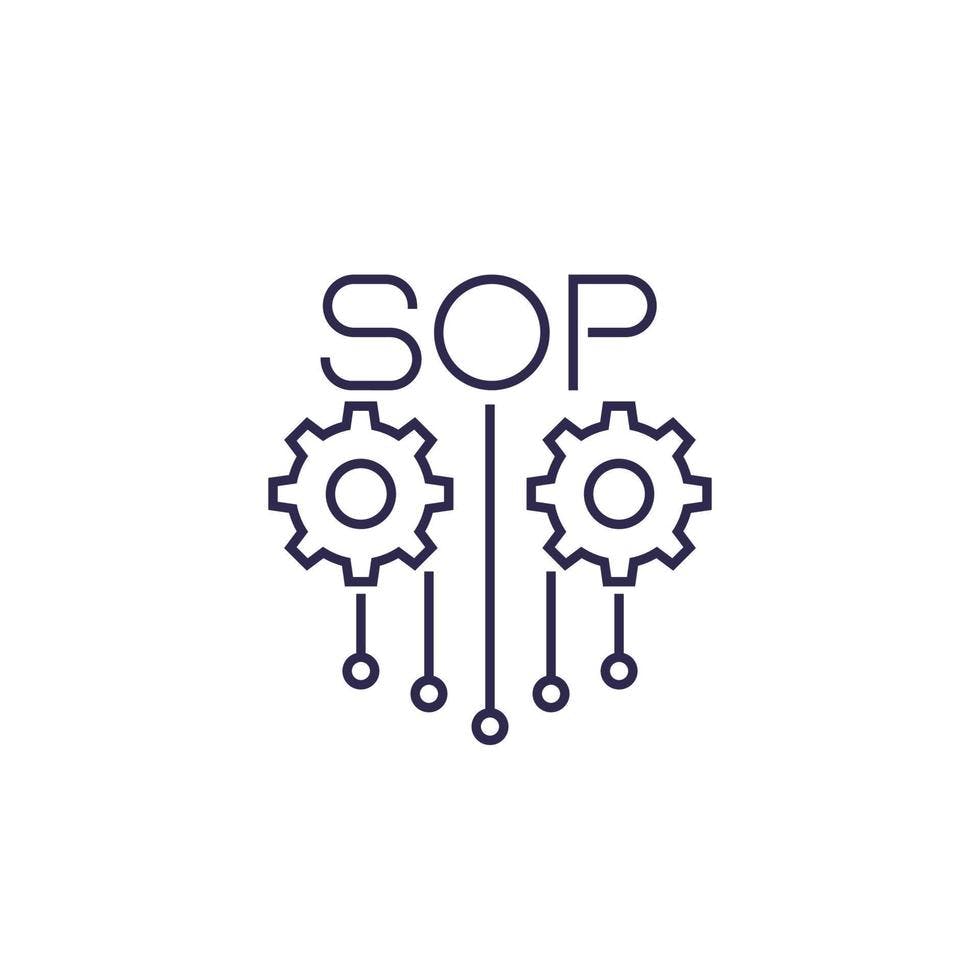Industrial Privacy Protection: Managing Data Risks in Connected Manufacturing and Smart Operations
Your connected production line generates millions of data points daily, but you're not sure which qualify as personal data or how to protect them.
Industrial privacy protection has emerged as a critical business imperative for manufacturing organizations adopting Industry 4.0 technologies. The convergence of information technology and operational technology systems creates unprecedented efficiency opportunities while simultaneously introducing complex privacy and security risks that impact operational continuity and regulatory compliance.
This guide explains industrial data privacy challenges unique to manufacturing environments, regulatory requirements affecting connected operations, and how Secure Privacy's SOC 2-certified platform supports comprehensive privacy governance across industrial systems.

Prioritizing user privacy is essential. Secure Privacy's free Privacy by Design Checklist helps you integrate privacy considerations into your development and data management processes.
What Is Industrial Privacy Protection?
Industrial privacy protection refers to the safeguarding of personal and sensitive operational data generated by connected systems, machines, and employees in industrial environments. This discipline extends beyond traditional corporate data privacy by addressing the unique challenges of operational technology systems, IoT devices, and smart manufacturing infrastructure.
The distinction from traditional IT privacy is fundamental. Corporate data privacy typically focuses on customer information and business applications. Industrial privacy protection encompasses these elements while adding complexity from connected machinery, sensor networks, biometric monitoring systems, and supply chain data flows crossing organizational and national boundaries.
Industry 4.0 amplifies these challenges through massive IoT deployment and real-time data analytics. Manufacturing facilities now average 47 IoT devices per thousand square feet of factory space, with global IoT adoption in manufacturing growing at 11.9% annually. Each connected device represents a potential privacy risk point requiring assessment, documentation, and protection.
The Privacy Challenges in Industrial Environments
Industrial environments generate unprecedented data volumes from diverse sources, creating privacy risks that traditional corporate privacy programs weren't designed to address.
Explosion of Data from Connected Systems: Modern manufacturing facilities deploy thousands of connected devices including programmable logic controllers, sensors, cameras, and human-machine interfaces. Research indicates approximately 57% of IoT devices in industrial settings run on outdated operating systems, lack encryption, or use weak credentials, creating multiple entry points for unauthorized access.
The passive nature of many IoT devices makes it difficult for individuals to be informed that their personal information is being collected. Devices collect information automatically, often relying on opt-out models that don't work effectively with non-interactive IoT systems.
Mixed Data Types Creating Compliance Complexity: Industrial data streams blend multiple categories simultaneously. A connected production line might generate operational telemetry, personal data from operator identification, and sensitive business information in the same data stream. This mixing creates classification challenges—is video footage from safety cameras operational data or personal data requiring GDPR protection?
Complex Data Flows Across Vendors: Connected operations enable data sharing across supply chains, creating potential privacy exposures when personal data transmits between organizations without proper controls. Third-party maintenance vendors access industrial systems remotely, potentially viewing employee data and proprietary processes without documented authorization.
Lack of Visibility Into Data Processing: Many industrial organizations lack comprehensive inventories of connected devices, data flows, and processing activities across operations. Legacy systems may have been deployed decades ago without privacy considerations. You cannot protect data you don't know exists or document processing activities you haven't discovered.
Similar challenges apply to consumer-facing connected devices like Android TV, which collect viewing, interaction, and sometimes biometric data with minimal user awareness.
Regulatory Landscape for Industrial Privacy
Industrial organizations face an increasingly complex regulatory landscape with privacy requirements extending beyond traditional data protection laws.
GDPR Requirements for Industrial Data
The General Data Protection Regulation significantly impacts manufacturing organizations processing personal data of EU residents. GDPR compliance in manufacturing encompasses several critical areas.
Employee data protection requires explicit consent before processing employee information including biometric data from access control systems and performance metrics from connected equipment. Smart factories collect personal data through video surveillance, biometric scanners, wearable devices tracking worker location, and connected equipment monitoring behavior.
Data retention and erasure obligations apply to industrial data containing personal information. Organizations must implement systems handling data subject requests while maintaining operational continuity. When employees leave, their personal data must be removed from access control systems, monitoring databases, and archived production logs.
Breach notification requirements mandate reporting data breaches to supervisory authorities within 72 hours. Industrial breaches often involve operational technology systems where traditional IT security monitoring may not provide visibility, complicating rapid detection and response.
NIS2 Directive and Cybersecurity Alignment
The NIS2 Directive establishes cybersecurity requirements for critical infrastructure including manufacturing facilities in essential sectors. NIS2 requires organizations to implement appropriate technical and organizational measures proportionate to security risks, assess supply chain security, and report significant incidents to national authorities.
U.S. Privacy Frameworks and Industry Standards
Manufacturing organizations with U.S. operations face expanding state-level privacy legislation including the Texas Data Privacy and Security Act, Florida Digital Bill of Rights, and Oregon Consumer Privacy Act. California's CCPA and CPRA impose specific obligations for third-party data sharing, consumer access rights, and prohibitions on data sale.
Manufacturing organizations increasingly adopt recognized standards demonstrating privacy commitment. ISO 27001 provides systematic frameworks for information security management. ISO 27701 extends ISO 27001 with specific privacy information management requirements.
Secure Privacy has achieved SOC 2 certification, ensuring robust data handling practices suitable for industrial environments. This certification validates that our platform maintains appropriate technical and organizational measures for protecting sensitive data across complex operational contexts.
Key Risks and Threats to Industrial Data Privacy
Understanding specific threats helps manufacturing organizations prioritize privacy protection efforts.
Unauthorized Access to IoT Data: Industrial IoT devices often use default passwords, lack encryption, or run outdated software with known vulnerabilities, enabling unauthorized access to personal data collected by connected systems.
Poor Consent Management: Manufacturing organizations frequently implement employee monitoring systems or biometric access controls without obtaining proper consent or providing clear privacy notices, creating GDPR compliance violations.
Inadequate Vendor Risk Management: Third-party maintenance providers and supply chain partners access industrial systems remotely. Without proper vendor assessment and access monitoring, organizations cannot verify appropriate data handling.
Legacy System Vulnerabilities: Industrial equipment often operates for decades with minimal security updates, creating privacy risks when connected to networks or integrated with newer systems containing personal data.
Safety Systems and Personal Data Overlap: Video surveillance, wearable devices for hazard detection, and location tracking for emergency response all collect personal data. Organizations must balance safety imperatives with privacy obligations.
Building a Privacy Governance Framework
Effective industrial privacy protection requires structured governance frameworks integrating privacy into existing operational and security management systems.
Integrating Privacy into ISMS: Organizations with established Information Security Management Systems under ISO 27001 can extend these frameworks to address privacy requirements. Integration ensures privacy controls align with existing security measures while addressing unique privacy obligations.
Assigning Ownership and Collaboration: Industrial privacy governance requires collaboration between Data Protection Officers, IT security teams, and operational technology managers. Clear role definition prevents gaps—DPOs own privacy strategy, while IT and OT teams implement technical controls.
Documenting Processing Activities: GDPR Article 30 requires comprehensive records of processing activities. For industrial organizations, documentation must cover operational technology systems, IoT devices, employee monitoring systems, and supply chain data sharing.
Secure Privacy's Systems module enables organizations to maintain comprehensive technology inventories including operational technology and IoT devices. The platform's data flow mapping capabilities document how personal data moves through complex industrial environments.
Implementing Risk Assessments and Vendor Audits: Regular privacy risk assessments identify potential vulnerabilities before they become incidents. Secure Privacy's Risks module provides structured frameworks for assessing privacy risks across industrial environments, while the Vendors module facilitates systematic vendor assessment and compliance tracking.
Technologies Enabling Industrial Privacy Protection
Technology solutions help manufacturing organizations implement privacy controls at scale.
Consent Management: When collecting employee data through wearables or monitoring systems, organizations need mechanisms for obtaining and documenting consent. Secure Privacy's consent management capabilities enable compliant data collection while maintaining comprehensive records.
Data Mapping: Understanding what personal data exists and how it flows through industrial systems is fundamental. Automated data discovery tools identify personal data across OT and IT systems, creating comprehensive inventories.
Anonymization and Pseudonymization: When possible, removing or obfuscating personal identifiers reduces privacy risk while maintaining data utility. Industrial telemetry can often be anonymized without losing analytical value.
Secure Data Transmission: Implementing TLS encryption, VPNs, and network segmentation protects data in transit between industrial systems. Zero-trust architecture principles ensure verification for every access request.
Automation Tools: Automated compliance monitoring, report generation, and policy enforcement reduce operational overhead while improving accuracy across industrial environments with thousands of devices.
Best Practices for Industrial Data Protection
Conduct Regular Data Protection Impact Assessments: Industrial implementations of employee monitoring, biometric systems, or extensive IoT deployments typically qualify as high-risk under GDPR, necessitating formal impact assessments.
Limit Personal Data Collection: Apply data minimization principles to industrial systems. Configure sensors and monitoring systems to collect only information necessary for operational purposes.
Encrypt Data in Transit and at Rest: Implement encryption for data transmitted across industrial networks and stored in operational databases. Modern industrial protocols increasingly support encrypted communications.
Use Certified Privacy Platforms: Leverage platforms with recognized certifications like SOC 2 demonstrating appropriate security and privacy controls. Secure Privacy's certification provides assurance that privacy governance tools meet rigorous standards.
Establish Strong Vendor Controls: Implement comprehensive vendor assessment processes, contractual requirements for data protection, access controls for vendor system access, and regular audits verifying compliance.
How Secure Privacy Supports Industrial Privacy Compliance
Secure Privacy provides comprehensive privacy governance capabilities specifically designed for complex industrial environments requiring integration between IT and OT systems.
End-to-End Privacy Governance: Our platform delivers complete privacy management from initial data discovery through ongoing compliance monitoring. Industrial organizations benefit from unified visibility across traditional IT systems and operational technology networks.
System and Vendor Inventories: The Systems module enables comprehensive tracking of all technology processing personal data, including legacy industrial systems and IoT devices. The Vendors module centralizes third-party oversight, documenting vendor data processing activities and compliance status.
Risk Assessment Tools: Secure Privacy's risk management capabilities support assessment of both operational and privacy risks in industrial contexts, enabling identification, evaluation, mitigation, and ongoing monitoring.
Automated Compliance Reports: Generate documentation aligned with GDPR, ISO standards, and SOC 2 requirements. Automated reporting reduces manual effort while ensuring consistency. Industrial organizations can demonstrate compliance to regulators and auditors through comprehensive reports.
Multi-Site, Multi-Department Support: Manufacturing organizations operating multiple facilities benefit from centralized governance with local customization, enabling consistent privacy policies while accommodating regional regulatory variations.
Future of Industrial Privacy Protection
AI, IoT, and Privacy-by-Design Convergence: As AI adoption accelerates in industrial operations, privacy-by-design principles become essential, ensuring privacy protections are built into AI systems from inception.
Data Sovereignty and Localization Laws: More jurisdictions are implementing requirements for local data storage. Manufacturing organizations with global operations must navigate varying data residency requirements while maintaining operational efficiency.
Predictive Compliance: Emerging privacy platforms use AI to predict compliance risks, suggest remediation actions, and automate routine privacy tasks, enabling proactive privacy management.
Frequently Asked Questions
What makes industrial privacy different from corporate data privacy?
Industrial privacy addresses unique challenges of operational technology systems, IoT devices, and smart manufacturing infrastructure that traditional corporate privacy programs weren't designed to handle. It includes connected machinery, sensor networks, biometric monitoring systems, and supply chain data flows that blend personal data with operational telemetry in real-time industrial environments.
How does GDPR apply to manufacturing operations?
GDPR applies to any manufacturing organization processing personal data of EU residents, including employee data from biometric systems, wearable devices, and monitoring systems. Organizations must obtain explicit consent, implement data subject rights procedures, report breaches within 72 hours, and maintain comprehensive documentation of processing activities across both IT and OT systems.
What are the biggest privacy risks in Industry 4.0 environments?
The biggest risks include unauthorized access to IoT data through devices with weak security, poor consent management for employee monitoring systems, inadequate vendor risk management when third parties access systems remotely, legacy system vulnerabilities in decades-old industrial equipment, and the overlap between safety systems and personal data collection.
How can small manufacturers implement industrial privacy protection?
Start with data discovery to understand what personal data exists across systems, implement basic consent processes for employee monitoring, conduct vendor assessments for third-party access, use certified privacy platforms like Secure Privacy for automated governance, and prioritize high-risk processing activities like biometric systems for formal data protection impact assessments.
Protect Your Industrial Operations with Comprehensive Privacy Governance
Industrial privacy protection is no longer optional for manufacturing organizations operating in regulated markets or deploying Industry 4.0 technologies. The convergence of stringent privacy regulations, sophisticated cyber threats, and complex operational environments requires systematic privacy governance that balances compliance obligations with operational imperatives.
Secure Privacy's SOC 2-certified platform delivers the privacy governance capabilities industrial organizations need. Our comprehensive solution addresses the unique challenges of manufacturing environments through specialized modules for system inventory, vendor management, risk assessment, and compliance documentation.
Discover how Secure Privacy helps industrial organizations achieve comprehensive privacy governance across complex operational environments. Schedule a platform demo to see how our Systems, Vendors, and Risks modules work together for industrial privacy protection.
Your industrial operations generate sensitive data every second. Protect it with privacy governance built for manufacturing complexity.
Get Started For Free with the
#1 Cookie Consent Platform.
No credit card required

GDPR Compliance for Mobile Apps (2026): Consent, SDKs, and Practical Implementation
Your mobile app displays a consent banner when users first launch it. Your privacy policy lists the data you collect. Your app store listing includes Apple's Privacy Nutrition Label. And yet, when regulators test your app with network monitoring tools, they discover that analytics SDKs are firing before users interact with the consent interface, advertising identifiers are being transmitted without explicit opt-in, and third-party trackers are active despite users declining consent.
- Legal & News
- Data Protection

AI Governance: The Complete Enterprise Guide to Risk, Compliance, and Accountability
Your organization uses AI to screen job candidates, personalize customer experiences, and automate credit decisions. Six months ago, these were software features. In 2026, they're regulated AI systems subject to the EU AI Act's high-risk classification—requiring technical documentation, logging infrastructure, human oversight mechanisms, and formal risk assessments before deployment. Non-compliance penalties reach €35 million or 7% of global revenue.
- Legal & News
- Data Protection

Data Protection Standard Operating Procedures (SOPs): A Practical Guide
Your privacy policy is published. Your data processing register exists somewhere in a shared drive. Your legal team signed off on vendor contracts last year. And yet, when a data subject access request arrives or a breach occurs at 11pm on a Friday, nobody knows exactly what to do, who owns the process, or what evidence needs to be captured.
- Data Protection
- Privacy Governance
